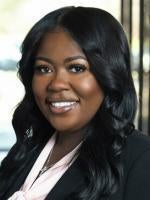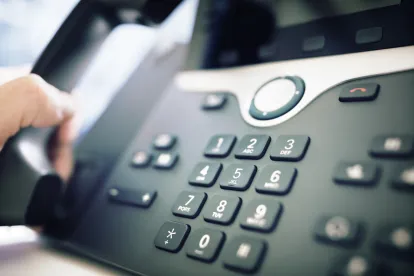On April 1, 2021, the United States Supreme Court issued an opinion in Facebook, Inc. v. Duguid, clarifying the definition of automated telephone dialing system (“autodialer” or “ATDS”) under the Telephone Consumer Protection Act ("TCPA"). Noah Duguid sued Facebook under the TCPA, alleging that he received repeated texts in 2014 from Facebook notifying him of an attempted log-in even though he did not have an account. He alleged that Facebook violated the TCPA by maintaining a database that stored phone numbers and programming its equipment to send automated text messages.
The TCPA prohibits any person from placing phone calls and text messages to a wireless number using an ATDS or an autodialer, or a pre-recorded or artificial voice without the recipient’s prior express consent unless the call is made for an emergency purpose. Marketing calls require prior express written consent. Courts, businesses, and governmental agencies have disagreed over what constitutes an autodialer for TCPA purposes.
The Supreme Court issued a unanimous opinion which rejected the more expansive definitions of autodialer and adopted a narrow definition. Specifically, the Court held the following:
- To qualify as an automatic telephone dialing system, a device must have the capacity either to store a telephone number using a random or sequential generator or to produce a telephone number using a random or sequential number generator.
Therefore, a device that can store and dial telephone numbers, but that does not use a random or sequential number generator, is not an autodialer.
The key to whether a device is an autodialer under the TCPA is whether it uses a random or sequential number generator. Prior to the Supreme Court decision, some lower courts broadly interpreted autodialer under the TCPA. The Supreme Court unanimously overruled the Ninth Circuit Court of Appeals’ decision which held that an autodialer includes equipment that (i) either has the capacity to store numbers to be called or to produce numbers to be called using a random or sequential number generator, and (ii) has the capacity to dial such numbers. Under this broad interpretation, any communications device that can store and dial phone numbers could be considered an autodialer if the business did not obtain sufficient consent from the consumer, and such calls would violate the TCPA. Facebook, Inc. v. Duguid clarified the application of the TCPA by narrowing the definition of automated telephone dialing system.
Facebook, Inc. v. Duguid is a favorable decision for businesses that call or text individuals. As long as the business does not use a random or sequential number generator then the business will be protected from TCPA liability with respect to the relevant provision. The TCPA is an attractive avenue for liability due to the possible damage awards. The statute provides damages up to $1,500 per call for willful or knowing violations, among other relief, with no cap on damages. However, the Supreme Court’s decision will likely quiet TCPA class action litigation in relation to the autodialer provision, which would be a welcome relief to businesses.





 />i
/>i

